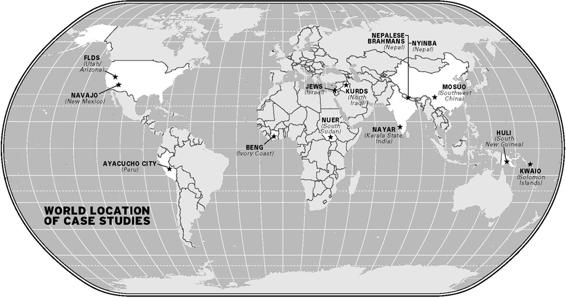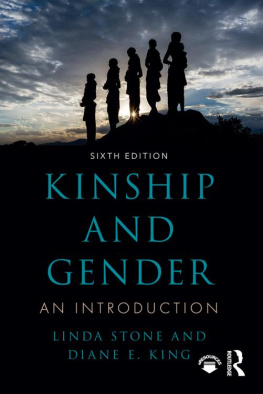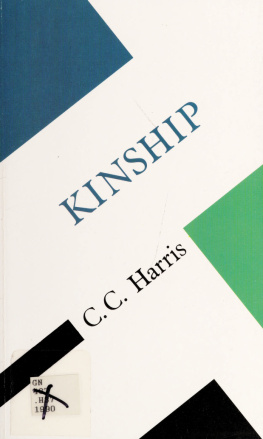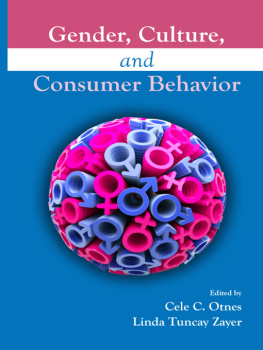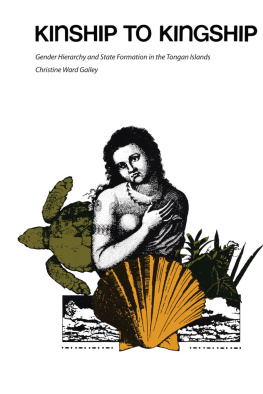Kinship and Gender
Does kinship still matter in todays globalized, increasingly mobile world? Do family structures continue to influence the varied roles that men and women play in different cultures? Answering with a resounding yes!, Linda Stone and Diane E. King offer a lively introduction to and working knowledge of kinship. They firmly link these concepts to cross-cultural gender studies, illuminating the malleable nature of gender roles around the world and over time.
Written to engage students, each chapter in Kinship and Gender provides key terms and useful generalizations gleaned through research on the interplay of kinship and gender in both traditional societies and contemporary communities. Detailed case studies and cross-cultural examples help students understand how such generalizations are experienced in real life. The authors also consider the ramifications of current social problems and recent developments in reproductive technology as they demonstrate the relevance of kinship and gender to students lives.
The fully-revised sixth edition contains new case studies on foster parenting in the United States and on domestic violence. It provides new material on pets as family members and an expanded discussion of the concept of lineal masculinity. There is also a comparison of the adoption of new reproductive technologies in Israel with other countries, along with a discus sion of the issue of transnational movements in the use of these technologies.
Linda Stone is Professor Emeritus of Anthropology at Washington State University, USA.
Diane E. King is Associate Professor of Anthropology at the University of Kentucky, USA.
Kinship and Gender
An Introduction
Sixth Edition
Linda Stone and Diane E. King
Sixth edition published 2019
by Routledge
711 Third Avenue, New York, NY 10017
and by Routledge
2 Park Square, Milton Park, Abingdon, Oxon, OX14 4RN
Routledge is an imprint of the Taylor & Francis Group, an informa business
2019 Taylor & Francis
The right of Linda Stone and Diane E. King to be identified as authors of this work has been asserted by them in accordance with sections 77 and 78 of the Copyright, Designs and Patents Act 1988.
All rights reserved. No part of this book may be reprinted or reproduced or utilised in any form or by any electronic, mechanical, or other means, now known or hereafter invented, including photocopying and recording, or in any information storage or retrieval system, without permission in writing from the publishers.
Every effort has been made to contact copyright-holders. Please advise the publisher of any errors or omissions, and these will be corrected in subsequent editions.
Trademark notice : Product or corporate names may be trademarks or registered trademarks, and are used only for identification and explanation without intent to infringe.
First through fifth editions published 1997, 2000, 2006, 2010, and 2014 by Westview Press.
Library of Congress Cataloging-in-Publication Data
A catalog record has been requested for this book
ISBN: 978-1-138-59147-9 (hbk)
ISBN: 978-0-8133-5094-3 (pbk)
ISBN: 978-0-429-46311-2 (ebk)
Typeset in Sabon
by Florence Production Ltd, Stoodleigh, Devon, UK
Visit the eResources: www.routledge.com/9780813350943
Contents
Figures
Images
Table
Kinship is often a difficult concept to graspbut as Linda Stone learned through many years of undergraduate teaching, the idea of kinship came alive in a new way for students when focused on the issue of gender. Similarly, students more easily understood the nuances of gender in different cultural contexts when they had a cross-cultural knowledge of kinship.
This book, then, is designed to provide an accessible yet comprehensive introduction to kinship for use in undergraduate classes on kinship, on gender, or, on the two combined. Most chapters adopt a historical perspective, showing how ideas in this field have developed over time. The book also includes fourteen ethnographic case studies to give students a strong sense of the intricate interconnections between kinship and gender as a lived experience and among a variety of cultural groups.
The book may be used as a supplementary text in courses that focus on gender or families cross-culturally but do not otherwise deal with anthropological kinship. However, in these courses, instructors might wish to skip over (Double, Bilateral, and Cognatic Descent), since the material there on kinship is more technical and complex than in other chapters.
When Stone began the first edition of this book in the 1990s, she could not have chosen a more difficult time to write an introductory text on kinship. At that time, kinship, possibly the most tortured topic in anthropology, nearly slipped off the edge of professional interest. Yet, particularly when linked with gender, kinship has since seen a revival, as briefly covered here in . There are many current issues and debates related to kinship that are of keen interest to professional readers, but that we could not delve deeply into in this introductory text. We have, however, tried to give students a sense of the directions that contemporary investigations of kinship and gender are taking. The suggested further reading and references concluding each chapter will guide readers in search of greater detail.
This sixth edition of the book incorporates a major changethe addition of a co-author, Diane E. King. With her own work on kinship and gender and her expertise in the Middle East, King provides new material and a fresh perspective throughout the book.
Along with general updating, this edition of the book contains new features in three particular chapters. (on the New Reproductive Technologies) now compares the adoption of these technologies in Israel with that of other countries and discusses the issue of trans-national movements in the use of these technologies, or reproductive tourism.
Acknowledgments
For their helpful comments on earlier editions of the book, we thank Karen Sinclair, Barry S. Hewlett, Jessica Lynch Alfaro, Andrew Strathern, Jeannette Mageo, and Nancy P. McKee. We are grateful to Lynn Bennett, Bernard Chapais, Alma Gottlieb, Jessaca Leinaweaver, Nancy E. Levine, and Miranda Warburton for their assistance with particular chapters or specific case studies. This new edition of the book benefited from very useful suggestions from anonymous reviewers. For his considerable help and support during the preparation of the book through all editions, Linda Stone extends a special thanks to her husband, Paul F. Lurquin.
1
Gender, Reproduction, and Kinship
Women and men today are raising new questions about gender identity and status. In the process of forming these questions, we have seen a growth of interest in approaching the subject both cross-culturally and historically. In 2017, National Geographic magazine devoted a special issue to the topic of Gender Revolution, documenting new social movements, problems and controversies over gender worldwide. This broad approach has been essential in that it allows us to address some of the larger concerns, such as whether and to what extent women have been universally subjugated to men or treated as second-class citizens. In addition, many students have sought to look beyond the confines of their own cultures and times to gain a broader perspective on particular gender issues in their own societies.

